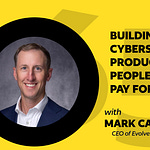Description: Most companies jump straight to AI use cases, whereas Dan Williamson at Ryan Companies US, Inc. started with education first. Rather than chasing the bells and whistles or sexy use cases, his team focused on helping people rethink their roles and understand how this tech will change their work.
Dan explains why he looks for willing business partners instead of fighting resistance, how rockstar superintendents became his best AI evangelists, and what happens when you prioritize eliminating the bane of most people's day over shiny objects.
Education over bells and whistles
Dan's approach to AI implementation at Ryan Companies flips the typical playbook. Instead of leading with sexy use cases, his team made an unexpected choice.
"One of the biggest things we did from a strategic standpoint related to AI wasn't all the bells and whistles - which use cases are you going after, what's the sexy thing you're doing right now? It was honestly communicating and educating with our company, giving them the right education, giving them a foundational understanding in order for them to rethink about their roles and rethink about how this technology will change their work. Because it ultimately will."
A three-module curriculum that he proved works
Working with the University of Minnesota, Dan built a practical education framework:
Hour-long fundamentals: "Give them semantics to talk about the words, to understand and read an article better. Remove that fog, the unknown unknowns."
90-minute hands-on: "I have this suspicion that no one takes the time for themselves unless you tell them to do it. If I were to give them an enterprise chatbot license and say 'go take 90 minutes and tinker,' they're not going to protect that time. So we protect that time for them."
Design thinking workshop: "We've given individuals a new toolset and new language to think about innovation, but we haven't taught them how to innovate and change."
Finding willing partners, not fighting resistance
Dan's change management philosophy is refreshingly honest: "I truly look for partners in the business who are willing to come on that journey. There are areas where there's been resistance, and that's just maybe not where we started. That doesn't mean we won't get there, but we're trying to prioritize the partners at Ryan who are really willing to go on the journey with us."
His approach involves getting on job sites: "We've tried to engage and empathize with our business partners as much as possible—getting on the job site, having them tell us their problems, listening really intently and coming at those problems with a different perspective."
The best ambassadors aren't who you think
"The best sellers of those ideas in domains where I'm not the expert—if I have our rockstar superintendents going out and selling the use cases we have, that's going to be a huge win. I hope it's them finding the value and driving that narrative more than I am."
TLDR: Start with people, not technology
Dan's approach proves that successful AI transformation requires treating it as a human challenge first, technical challenge second. Key lessons:
Education beats evangelism - Build foundational understanding before pushing use cases
Find willing partners - Work with early adopters rather than fighting resistance
Create internal champions - Your best evangelists are domain experts, not tech teams
Protect learning time - People won't make time for AI exploration unless you structure it.
People of Product is brought to you by Crema - a design & technology consultancy












